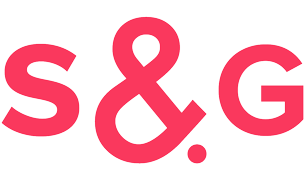According to Edison Research, more than half of all Americans over the age of 12 are now on Facebook. This would seem to imply that either everyone on Facebook falls perfectly into that half of the American population that rests north of the intelligence average, or that Facebook is easy enough to use that most people can pretty much figure it out.
Recent experience has been leading me to believe the former. We recently ran a social media campaign for a client, NYIBC, selling tickets for their first annual gala in honor of Ilona Copen and the presentation of the first ever award in her name. The first step, after meeting with a client and discussing goals, plans, and desires, and drawing a road-map for the campaign, is to assess current efforts and outreach. So we load up Facebook, and we look, and all our hopes of being able to easily integrate a branded FB page vanish. See, before hiring us, they had made a foray into the social media sphere. And another one. And one more. And a couple of events, too.
Not only did they have multiple profiles, but it appeared that they had run the gamut of profile options, from a person named Ny Ibc, to a place page, to a business profile. And yeah, those several events I mentioned. All of which had to be combed over, scavenged for whatever could be saved, and scrapped until only one remained (well, two, but that’s another story). And they aren’t the only ones making mistakes. A brief look around the Face-o-sphere found this gem in the profile of “social media experts” YouCast (screenshot in case it goes down) (come on guys, you’re making all of us look bad). I understand that Citizens United changed the meaning of “Corporate Personhood”, but a personal page for a company that specializes in social media engagement seems a little silly. With both of these examples, social media presence and brand equity is severely undermined, and in one case professional reputation is on the line.
Which got me thinking, where does this confusion come from? How is it possible that half of all Americans can figure out how to jump on the FB bandwagon, yet so many businesses manage to make such a mess of setting up a branded Facebook page.
Part of the blame lies with Facebook itself. The ever-changing standards and types of pages they offer can be a little overwhelming to someone diving in for the first time. Without a clear understanding of the intricacies and interrelations of their network, it’s hard to know what the difference between a fan page, a community page, a place page, and a personal profile is. Just one of the many benefits that a professional can offer. However this is not the final answer that puts the question to rest. I think the bigger issue here is that in the race to make it to the last big thing, too many people jump in without checking how deep the pool is. Too many companies have heard that all the real action is on Facebook and Twitter, and run headfirst into the social sphere without any kind of cohesive plan of attack or even a basic understanding of what they’re entering, how they plan on leveraging it, or whether it will actually improve their bottom line or not.
The thing is, everyone wants to be attached to the shiny new thing, but unless you know what you’re doing, and why you’re doing it, you end up flailing a lot, spending a lot of time and money, not seeing immediate returns, and leaving your fledgling presence an orphan on Facebook’s doorstep. The problem is that people seem to think that social media is something entirely new and different, but it isn’t. It’s the same ad campaigns that we’ve worked on for years. It’s shinier, and you can interact with customers as never before, but it takes just as much time, commitment, dedication, and above all, planning as any traditional marketing approach. Yes, planning! That is the biggest service a new media professional can offer you. We’re not doing this because we can make pretty pictures or fancy flash animations. We’re doing this because we can sit down with you, figure out what you want to do, and then tell you how to get there, how long it will take, and what it’s going to cost in terms of money, time, and effort.
So before you decide to jump on the bandwagon, ask yourself: why are you on Facebook? What do you hope to accomplish? And most importantly, do you know how to do it? If you can honestly answer yes to all these questions, great. You know your customers better than anyone, and if you know how to reach them, you’ll be able to do it better than any marketer. If you’re at all unsure, though, don’t throw hours and dollars down the drain making half-way attempts. Ask. We’re here, we’ll help, and we’ll make your campaign live up to high standards that your customers expect from your regular products.
